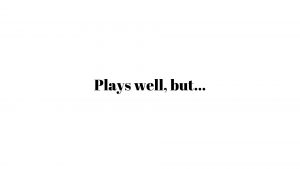
Once I read a quote that meant a lot to me. In English, it goes “if you don’t have anything good to say about someone, say nothing.” I can’t remember exactly when I read this quote, but I know it was during my teenage years. We know that teenage years is that time in our lives when we set our own rules, although later we realize that most of these rules falls apart because life is too diverse to fit into them. Fortunately, the rule “if you don’t have anything good to say about someone, say nothing” has endured.
This rule has helped me a lot. It has helped me to keep both gossip and gossipers out of my life, to be more friendly, to be more empathetic, to get gigs (yes, once a friend told me I got a gig because of my silence about people’s life), and last but not least, to live in peace. I’m glad to have this rule in my life.
I know that it is a rule with limitations, especially when one has to criticize other’s work. Now comes the point I would like to make in this article. When you are talking about someone’s musical performance, are you honestly criticizing their work or just using your comments to massage your ego?
I started to think about this situation when listening to people commenting about other’s performance. In several situations I have noticed people adding the coordinating conjunction but in a particular manner. I have heard many comments like:
He/she sings well, but…
He/she has a good technique, but…
His/her concert was nice, but…
 Although I have felt truth on many people’s words, I also have felt people using the coordinating conjunction but to counterbalance their own weaknesses. Better explaining, if I don’t have enough skills to develop a good melody on a solo, for example, and I watch a good improviser in a concert, I can try to find a weakness on their performance and put it into the same comment to nullify their skills. In other words, if I say “his solos are good, but his bass tone is terrible,” I might be saying that I have something better than him, therefore he is not that good musician or not better than me. I am using my comment to massage my ego.
Although I have felt truth on many people’s words, I also have felt people using the coordinating conjunction but to counterbalance their own weaknesses. Better explaining, if I don’t have enough skills to develop a good melody on a solo, for example, and I watch a good improviser in a concert, I can try to find a weakness on their performance and put it into the same comment to nullify their skills. In other words, if I say “his solos are good, but his bass tone is terrible,” I might be saying that I have something better than him, therefore he is not that good musician or not better than me. I am using my comment to massage my ego.
If you are this kind of people, it might be a good idea to reconsider your behavior. To me, we become better musicians when we accept that we have weaknesses. They don’t make us worse because music is not competition. Not being able to do one thing is not a shame because we have plenty of other things that we can brightly do. Shame is to hide our weaknesses and not to work to overcome them. Shame is looking at someone’s performance and trying to find flaws to “justify” why we are not as good as we would like.
Think about it and, when appropriate, just say nothing.
HP